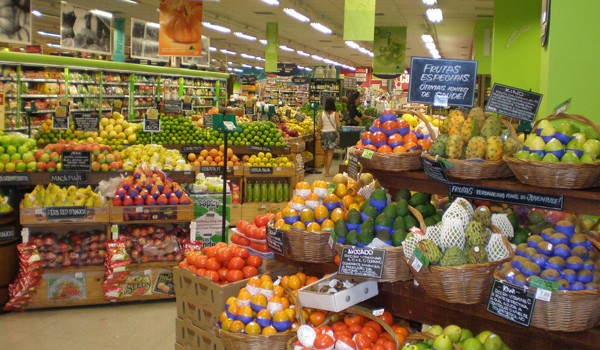Tips for Grocery Shopping on a Budget
- Set a weekly or biweekly budget for food. You’ll be surprised what you can do with $20!
- Plan your meals for the week, and consider cooking food on the weekend for the rest of your week. This can keep you from spending money on take-out when you run out of time or energy after work or a day of classes (and I absolutely promise that you will have those days).
- Go through grocery store circulars and make a grocery list BEFORE you set foot in the store. This makes your trip more efficient and you increase the likelihood that you’ll stay within your budget. The longer you stay in a store and the more you browse the more money you will ultimately spend. Trust me on this.
- Get to know what good sale prices are for groceries you buy regularly. Stores rotate through sale items. If you know what a good price is for a certain item, you will know when to jump on it! This knowledge will come with time, but here are a few examples that I always have in the back of my mind:
- Boneless skinless chicken breasts, pork roasts, and pork chops: $1.99 lb or less
- Whole chickens and chicken legs/thighs: $.99 lb
- Beef roasts or steaks: $4.99 lb or less
- Cereal (depends on brand): $1.99 or less
- Prewashed bags of salad (such as Dole): $1.64
- Frozen vegetables: $.99/bag or less
- Shredded and block cheese: $1.49-1.99
- Eggs: $1.29/dozen
- Paper towels: $4.99 (8-pack)
- Toilet paper: $3.00/pack
- Laundry detergent: $2.00/bottle
- Use coupons! Combining them with store sales is absolutely magical. I would even say it’s a bit addictive.
- com
- Newspaper inserts
- Ebay
- Store-printed
- com
- http://www.pillsbury.com/coupons
- Sign up online for specific stores (Acme, Shop Rite, etc.)
- If something you love and use is on super sale (and maybe you even have coupons!), don’t be afraid to stockpile. Most things can be frozen for months and still be delicious. If you buy meat in bulk, you can repackage it into smaller, more usable portions (use freezer bags!) before freezing. Nonperishables often have long expiration dates. Just make sure you keep track of what you have in your pantry and freezer so that you use it before you lose it. Use the “first in, first out” rule. In other words, use the oldest items first! This does save you a lot of money over time even though you are spending a little more upfront.
Fruit and Vegetable FYIs
- Fruits and vegetables are always cheaper when they are in season and bought locally. They also happen to be more nutritious. You are ALWAYS going to pay significantly more for strawberries in December, because they are shipped from thousands of miles away. They also aren’t as tasty, and all you really want is cheap, tasty berries.
- Therefore, it’s also cheaper to buy up produce while it’s in season and freeze it yourself. You can use it throughout the year in casseroles, soups, crockpotting, and smoothies! Some vegetables, such as string beans and asparagus, should be blanched (lightly steamed) before freezing. Do your research, but I promise it’s easy!
- Packaged frozen vegetables, such as Green Giant, are cheaper than fresh, particularly if the item is not in season.

